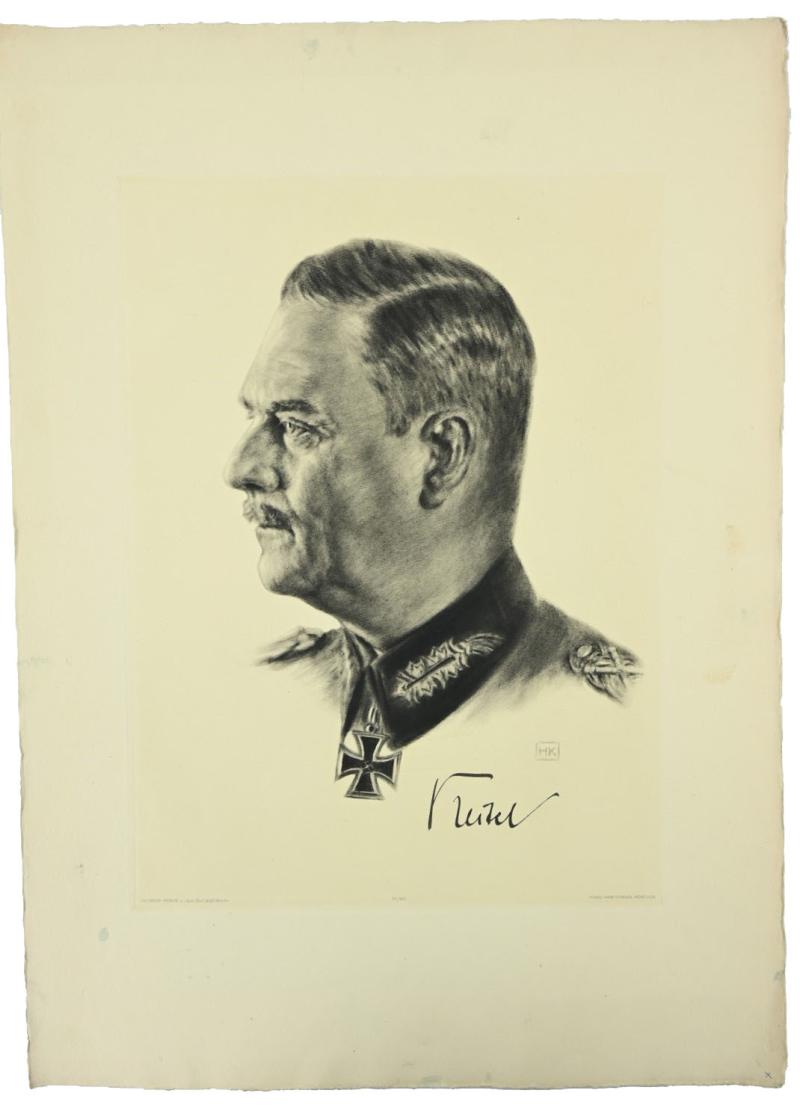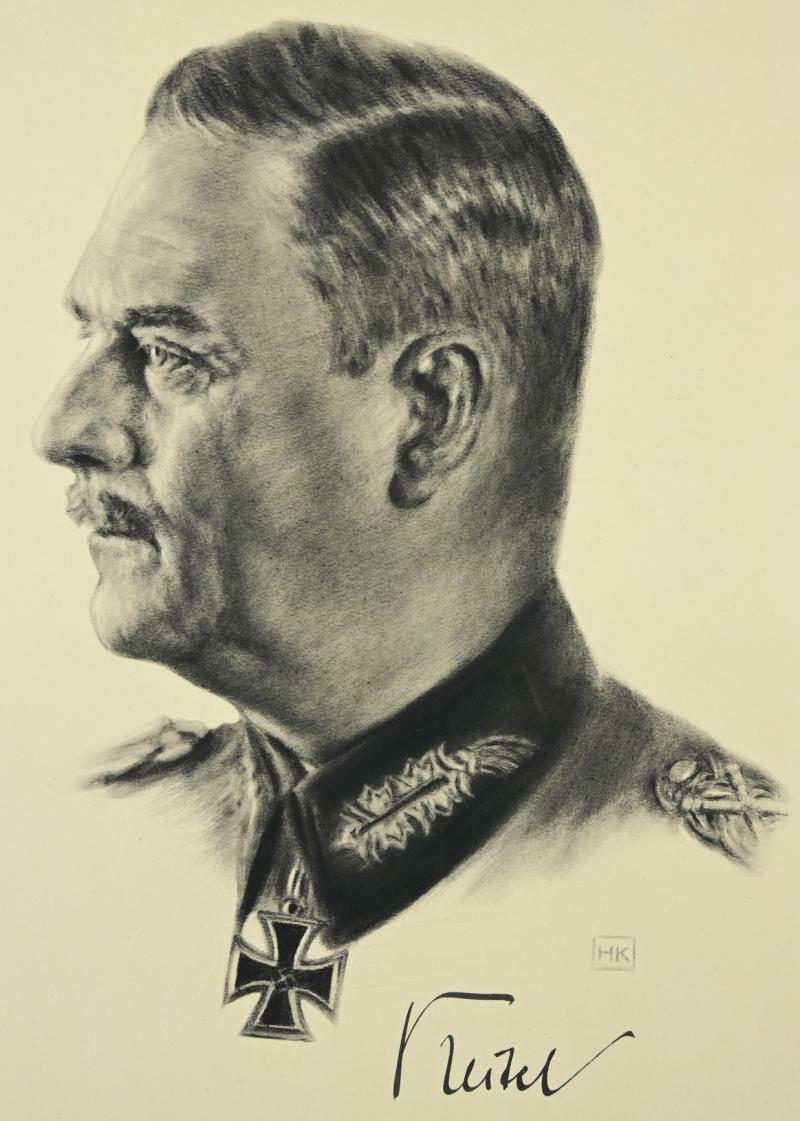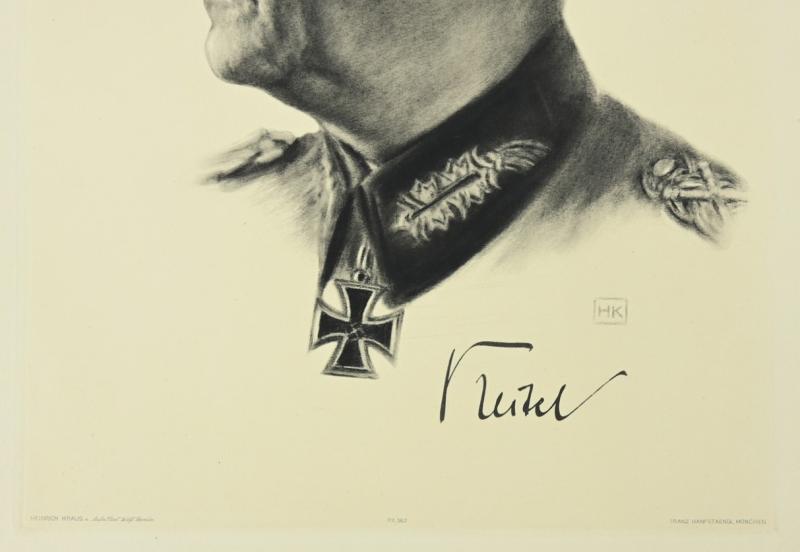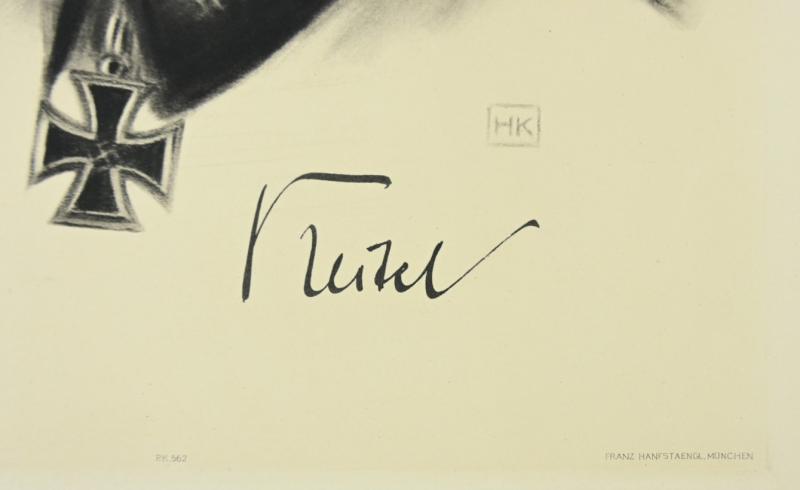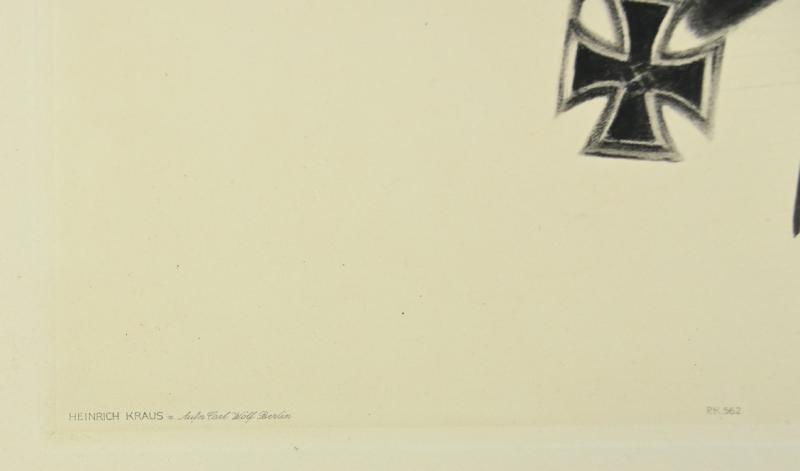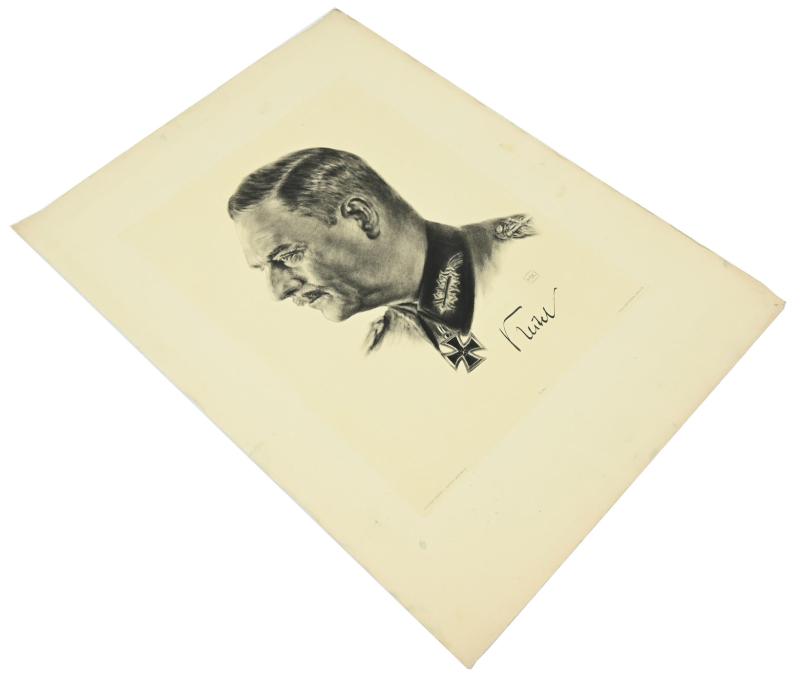German Third Reich Litho 'Generalfeldmarschall Wilhelm Keitel' by Heinrich Kraus
In a very good condition and rare to find print of the charcoal drawing made by Heinrich Kraus of Generalfeldmarschall Wilhelm Keitel.
The print comes in a size of 37x53cm and is uncut. The paper contains the pressing for a framework.
Wilhelm Bodewin Johann Gustav Keitel ( 22 September 1882 – 16 October 1946) was a German field marshal and war criminal who held office as chief of the Oberkommando der Wehrmacht (OKW), the high command of Nazi Germany's Armed Forces, for most of the Second World War. In that capacity, Keitel was Germany's de facto war minister. He signed a number of criminal orders and directives that led to numerous war crimes.
Keitel's rise to the Wehrmacht high command began with his appointment as the head of the Armed Forces Office at the Reich Ministry of War in 1935. Having taken command of the Wehrmacht in 1938 Hitler replaced the ministry with the OKW and Keitel became its chief. He was reviled among his military colleagues as Hitler's habitual "yes-man".
After the war, Keitel was indicted by the International Military Tribunal in Nuremberg as one of the "major war criminals". He was found guilty on all counts of the indictment: crimes against humanity, crimes against peace, criminal conspiracy, and war crimes. He was sentenced to death and executed by hanging in 1946.
This rare litho comes directly from the famous publishing house 'Franz Hanfstaengl' from Munich were it was discovered last year.
Franz Hanfstaengl was one of the intimate followers of Adolf Hitler.
Hanfstaengl and Hitler remained close through the 1920s and early 1930s.
He considered Hitler a diamond in the rough, lacking refinement and social skills. He took it upon himself to do the polishing. Introducing Hitler to Munich’s high society, he helped finance the publication of Mein Kampf and, dollar rich in inflation-hit Germany, bankrolled the NSDAP’s newspaper Völkischer Beobachter.
Code: 70301
650.00 EUR



